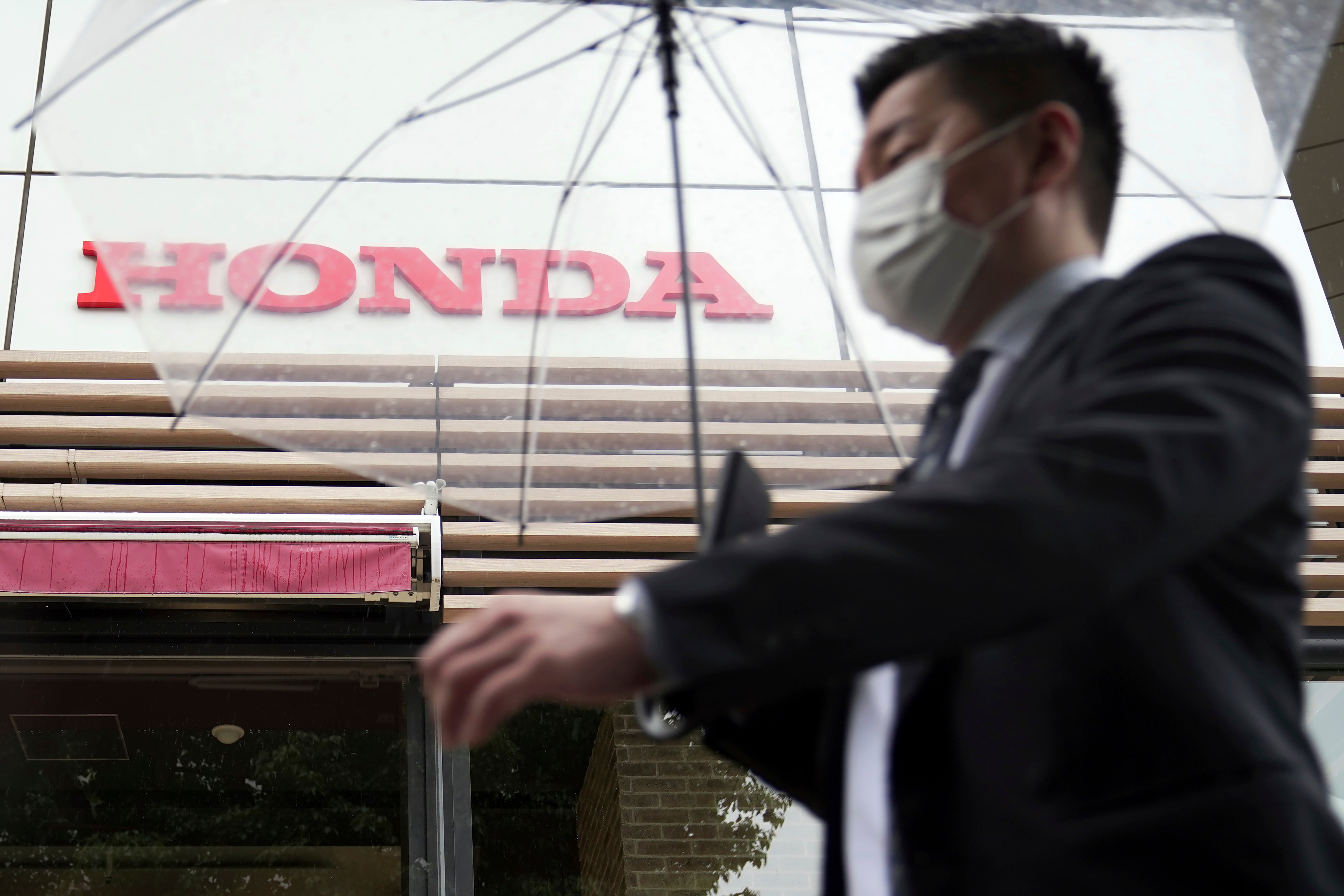Japan's Honda boosts profit despite chips crunch, COVID
Honda is reporting a 27% jump in its October-December profit, despite headwinds like shortages of computer chips and rising costs of raw materials

Your support helps us to tell the story
From reproductive rights to climate change to Big Tech, The Independent is on the ground when the story is developing. Whether it's investigating the financials of Elon Musk's pro-Trump PAC or producing our latest documentary, 'The A Word', which shines a light on the American women fighting for reproductive rights, we know how important it is to parse out the facts from the messaging.
At such a critical moment in US history, we need reporters on the ground. Your donation allows us to keep sending journalists to speak to both sides of the story.
The Independent is trusted by Americans across the entire political spectrum. And unlike many other quality news outlets, we choose not to lock Americans out of our reporting and analysis with paywalls. We believe quality journalism should be available to everyone, paid for by those who can afford it.
Your support makes all the difference.Honda reported a 27% jump in its October-December profit, despite headwinds like shortages of computer chips and rising costs of raw materials.
Tokyo-based Honda Motor Co.'s profit in the last quarter totaled 244.6 billion yen ($1.9 billion), up from 192.9 billion yen the year before.
Quarterly sales rose 20% to 4.4 trillion yen ($33.5 billion), as Honda sold more motorcycles around the world, compared to a year ago, while vehicle sales were little changed.
By region, Honda sold more vehicles in Japan and the U.S., but sales declined in China and other parts of Asia. Motorcycle sales grew across all major markets, including Japan, North America and the rest of Asia, especially Indonesia, India and Vietnam.
Like other automakers, including Japanese rivals such as Toyota Motor Corp., Honda is stepping up in the push to offer more electric vehicles, as concerns grow about the environment and climate change.
The maker of the Accord sedan, Asimo robot and Gold Wing motorcycles has promised to launch 30 EV models globally by 2030.
Honda is promising a range of models, from tiny vans to muscular sportscars. It’s especially aggressive in model offerings in China, where Honda is a strong brand.
The company is also going electric in motorcycles, introducing such products in Europe and China before a global rollout.
Honda was hurt by the shortage of computer chips and by pandemic-related disruptions in China, Eiji Fujimura, who oversees accounting at Honda, told reporters.
The war in Ukraine and other developments that have sent raw material costs and energy costs higher have also battered the bottom line of the world’s automakers.
But Honda was helped by favorable currency fluctuations, expecting that to add 269 billion yen ($2 billion) to its operating profit for the full fiscal year through March.
A weak yen boosts the earnings of Japanese exporters like Honda when translating overseas revenue into yen. The U.S. dollar was trading at about 115 yen a year ago. It rose as high as 150 yen over the past year and is trading at about 130 yen lately.
Honda stuck to its full year profit forecast at 725 billion yen ($5.5 billion), an improvement from 707 billion profit the previous fiscal year. It lowered its vehicle sales forecast to 3.85 million vehicles from an earlier 4.1 million. Honda sold 4.07 million vehicles the previous fiscal year.
Honda raised its motorcycles sales forecast for the fiscal year to 18.7 million, better than an earlier projection for 18.43 million motorcycles, and the 17 million motorcycles sold the previous fiscal year.
___
Yuri Kageyama is on Twitter https://twitter.com/yurikageyama